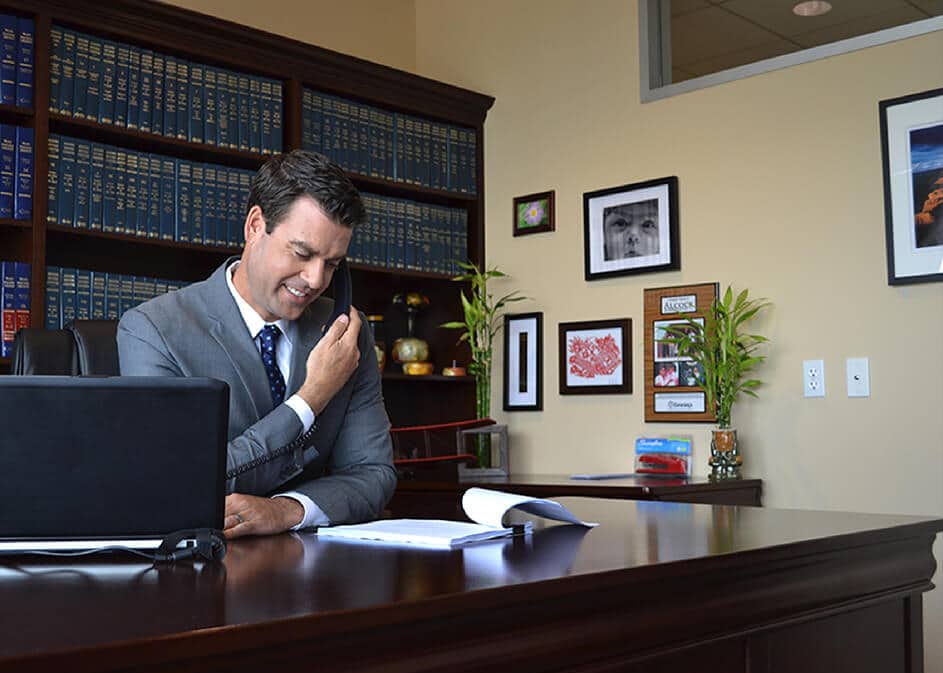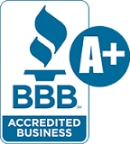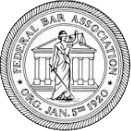What’s the Difference Between Bond and Bail Anyway?
Posted by Phoenix Criminal Defense Attorney Nick Alcock:
So you find yourself in the unfortunate situation of being arrested for a crime and booked into jail. You’ll soon be carted before the judge, who gets to decide the terms and conditions of your bail order. This can be a confusing concept for many, even if you consume a fair amount of criminal news.

Some individuals are “bonded out,” while others are “bailed out.” The two terms start to look interchangeable, as though they both mean the same thing. While they both have the same effect, temporary freedom, they’re actually different. You may ask yourself, what’s the difference between bond and bail; it is a subtle one, but it ultimately comes down to the source of the money.
What Is a Bond?
If the judge considers you a threat to society, most probably your bail will be denied, and you cannot be released. You will be “remanded” into police custody. If the judge allows for your release, a bond order has to be granted.
There are two types of bonds – secured and unsecured. A secured bond means that you actually pay money or bail property to secure your release. An unsecured bond or surety bond means you sign a document that says you will pay a certain amount of money if the defendant breaks his/her bond conditions.
What Is the Difference Between Secured and Unsecured Bonds?
Here’s a breakdown of secured vs. unsecured bonds:
You may be curious as to what is a secured bond. Secured bonds involve a tangible commitment, where you’re essentially investing in your freedom. By paying a specified amount or offering valuable property, you’re putting up collateral to ensure your compliance with the legal process.
What does an unsecured bond mean? Unsecured personal bonds or surety bonds rely more on trust and documentation. Instead of parting with cash or property upfront, you sign a legally binding document. This document is a promise, a commitment to pay a predetermined amount if the defendant violates the agreed-upon bond conditions.
Legal Implications of Breaking Secured and Unsecured Bonds
Understanding the legal consequences of breaking either type of bond is crucial. Whether you’ve staked your money or made a promise on paper, violating the conditions can result in serious legal repercussions. It’s essential to comprehend the potential outcomes and make an informed decision when choosing between secured and unsecured bonds.
The Bond Process
When it comes to understanding the bond process, we need to delve into how bonds work and discern the key differences from the traditional bail system.
Bonds operate as a financial arrangement that allows a defendant to secure their release from custody while awaiting trial. The defendant, often with the assistance of a bail bondsman or bail bond company, provides collateral such as a car or house to secure a loan.
Additionally, they pay a set fee, usually around 10% of the bail amount, to the bondsman. This fee serves as compensation for the risk taken by the bondsman in guaranteeing the defendant’s appearance in court.
Once the defendant completes the necessary paperwork and the collateral is secured, the bail bondsman pays a portion of the bail amount to the court. This partial payment acts as a guarantee that the full bail amount will be paid if the defendant fails to appear as required. It allows the defendant to be released from custody without paying the full bail amount upfront.
Differences in the Process Compared To Bail
While both bonds and bail share the common goal of securing a defendant’s temporary release, the processes involved exhibit distinct variations.
- Financial Responsibility
In a bail scenario, the defendant or their representative pays the full bail amount directly to the court. In contrast, with bonds, a third party, typically a bail bondsman, assumes financial responsibility. The bondsman covers a portion of the bail amount, and the defendant pays a fee to secure this service, making the financial burden less immediate for the defendant.
- Collateral and Fee Structure
Bail requires either a full cash payment or the provision of property as collateral. Bonds, on the other hand, involve collateral such as a car or house coupled with a set fee, typically 10% of the bail amount. This fee is non-refundable and serves as compensation for the bondsman’s services, differentiating it from the direct payment required for bail.
- Court Assurance
In both cases, the court seeks assurance that the defendant will appear for their court proceedings. With bail, this assurance comes directly from the defendant or their representative. Bonds introduce a third party, the bondsman, who assumes the responsibility of ensuring the defendant’s compliance with legal obligations.
What Is a Bail?
In some rare cases, a defendant can be released “on his recognizance.” Otherwise, cash, property, and surety bonds are ordered in most of the bail bond cases. Below, we will dissect what these bond types mean in criminal justice.
What is the meaning of cash bonds?
Cash bonds, generally referred to as “bail,” are the payment made in cash to the court. This form of bail provides a straightforward method, where the defendant or their representative delivers the full bail amount directly to the court. This ensures immediate financial commitment and serves as a tangible guarantee of the defendant’s appearance.
What Are Property Bonds?
Property bonds offer the title to a defendant’s property, which will be forfeited in the event of non-compliance. In this arrangement, the defendant pledges real estate as collateral for their release. The court places a lien on the property, indicating that the ownership will transfer to the court if the defendant fails to meet their court obligations.
Property bonds can be a viable option for those who may not have immediate cash but possess valuable assets.
What Does Surety Bond Mean?
A surety bond, generally referred to as a “bond,” is one when a third party agrees to be responsible for the debt or obligation of the defendant. In a surety bond scenario, a bail bondsman or a bail bond company steps in as the third party. The bondsman provides a financial guarantee to the court that the defendant will fulfill their legal obligations.
This involves the defendant securing a loan with collateral, such as a car or house, and paying a set fee, typically around 10% of the bail amount, to the bondsman.
The Bail Process
Navigating the legalities from arrest to freedom involves several crucial steps.
- Arrest and Booking
Law enforcement detains the individual suspected of committing a crime, and a detailed record, including personal information and charges, is created. This process is essential for maintaining a comprehensive legal trail.
- Bail Hearing
Following arrest and booking, the defendant faces a bail hearing. Here, a judge reviews the case’s specifics to determine if the individual is eligible for release before trial. The judge considers factors such as the severity of the charges, the defendant’s criminal history, and the potential flight risk.
During this critical phase, seeking guidance from an experienced Arizona attorney becomes invaluable. A skilled attorney can present a compelling case, addressing the factors that influence the judge’s decision and advocating for a reasonable bail amount.
The purpose is to decide whether the defendant can be trusted to appear for future court dates.
- Setting Bail Amount
Once the judge determines the eligibility for release, the next crucial step is setting the bail amount. This involves assessing various factors, including the nature of the alleged crime and the defendant’s ties to the community. The bail amount serves as a financial incentive for the defendant to return for their court appearances.
Legal Insights on What’s the Difference Between Cash Bail and Bond
Bail is the monetary amount a defendant must pay to secure his release. If he fails to appear at a specified time, he forfeits that amount. If the defendant or his family pays bail, he’s been bailed out of jail. But many criminal defendants don’t have the funds required to make bail. This is where bonds come in.
Bonds are bail monies paid by a bail bond company. The defendant secures a loan with collateral, such as a car or house. They also pay a set fee, usually 10% of the bail amount.
The bail bondsman then pays the court a portion of the bail monies and guarantees that the rest will be paid if the defendant disappears. Courts accept this as assurance because the defendant loses their property if they flee.
The Importance of Having The Right Criminal Defense Attorney

Engaging the right criminal defense attorney is vital when navigating the intricacies of bonds and bail. A skilled Phoenix attorney ensures a comprehensive understanding of legal nuances, guiding individuals to make informed choices. They play a crucial role in bail hearings, presenting compelling cases to secure reasonable bail amounts.
With expertise in the legal landscape, attorneys help individuals choose between bonds wisely, considering the financial implications and potential outcomes. A good attorney provides essential legal insights, safeguarding individuals from unnecessary risks and ensuring a fair and just legal process.
It’s important to seek legal representation for any case or charge with a successful track record and a wide range of practice areas, similar to Alcock & Associates. Your peace of mind matters and the right law firm would be dedicated to ensuring you have the information needed to make informed decisions.
Frequently Asked Questions
Can I get my bail money back if the charges are dropped?
Yes, in many cases, you can. However, there might be administrative fees or conditions attached.
What’s the difference between cash bail and bond?
Cash bail requires the full amount to be paid directly to the court, providing immediate freedom but tying up significant funds. On the other hand, a bond involves a third party, often a bail bondsman, covering a portion of the bail amount in exchange for a fee, allowing the defendant to secure release with a smaller immediate financial commitment.
Do I need a lawyer to secure bail or a bond?
It’s not mandatory, but having legal guidance can be beneficial in navigating the complexities of the process.
Can I use property as collateral for a bond?
Yes, property bonds involve using real estate as collateral, but the process can be intricate.
Are bail and bond amounts negotiable?
In some cases, yes. A skilled criminal defense lawyer may negotiate a lower bail or bond amount based on various factors.
What Does Bond Type Mean?
A bond type refers to the specific financial arrangement utilized for securing temporary release from custody while awaiting trial. It involves various categories, such as cash bonds, property bonds, and surety bonds.
Do I Have To Pay an Unsecured Bond?
No, payment is not required upfront for an unsecured bond. Unsecured bonds operate on a “good faith” basis, with no immediate financial transaction involved. However, failure to appear in court may result in fines.
What Does Bonded Out Mean?
The bonded out meaning is the same as asking, “What does out of bond mean?”. It is the process where a defendant secures their release from jail by posting a bond. A bond is a financial guarantee, often facilitated by a bail bond company, ensuring the defendant’s appearance in court.
When someone is “bonded out,” they or their representative pays a percentage of the total bail amount, typically 10%, to the bail bondsman. In return, the bondsman provides the court with a guarantee that the full bail amount will be paid if the defendant fails to appear as required.
What Does It Mean To Be Bonded Out of Jail?
Being “bonded out of jail” means securing release through a bail bond. When someone is arrested, a bail amount is set by the court. If the individual or their family cannot afford to pay the full bail, they can seek the services of a bail bond company.
Making Informed Decisions about Bail & Bonds
Releasing through bail or bonds requires understanding the legal system and making informed choices for justice. Knowing the nuances between bail and bonds is crucial for navigating legal complexities. Both offer temporary freedom, but differences arise in funding and financial responsibility.
Choosing between cash, property, or surety bonds involves considering advantages and drawbacks. Overall, securing release entails a deep understanding of the legal landscape, emphasizing informed choices.
If you have any questions whatsoever for one of our Phoenix Criminal Defense Attorneys at Alcock & Associates, please give us a call today for a free consultation right over the phone. 602-989-5000.

REPRESENTATION YOU DESERVE
Here at Alcock and Associates our team and staff are dedicated to helping and representing YOU. The first step is to understand your case. We will take the time to get to know you and your legal situation so that we are best able to answer all of your questions. After your initial consultation with our attorneys, you will know what you are facing and what can happen to your case.
EVERY CONSULTATION IS COMPLETELY FREE AND COMPLETELY CONFIDENTIAL.
Top Rated Phoenix Attorneys






